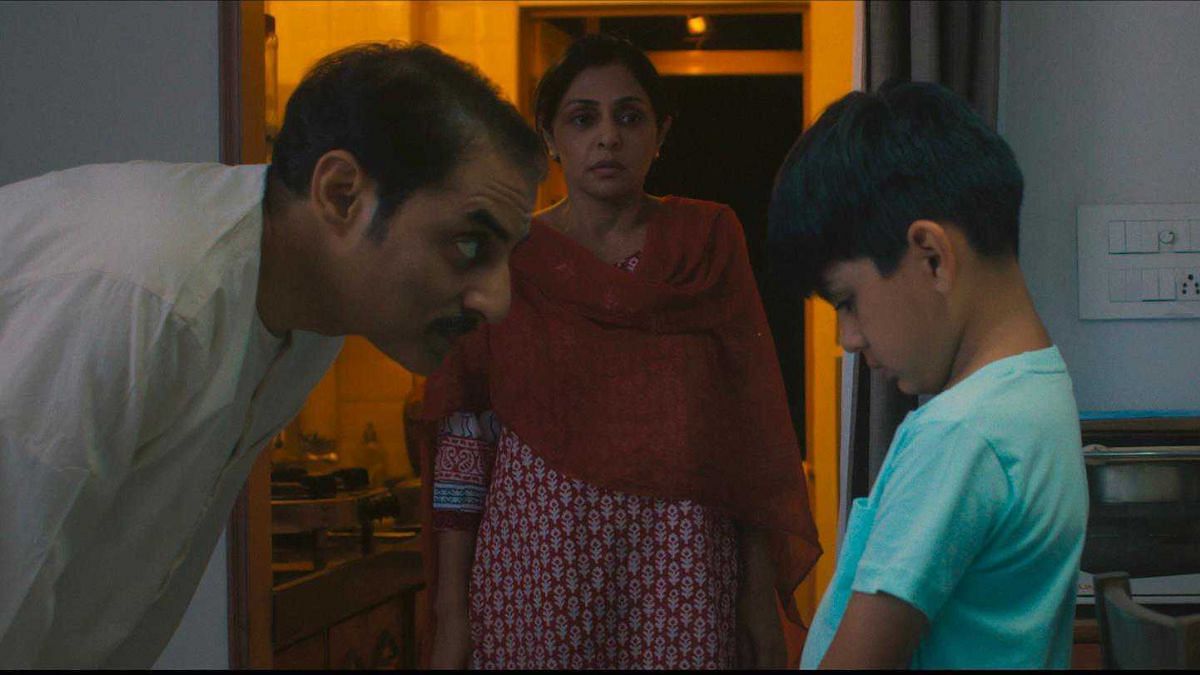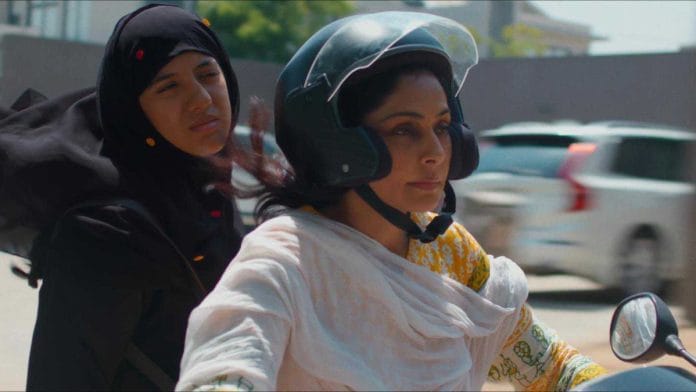Arastu Zakia’s short film Riha (Unlocked) opens with a typical middle-class family going about their lives: a mother preparing dinner, a son fetching a glass of water for his father, followed by the husband and wife sharing a bed. Normal, everyday scenes. Except this family is Muslim, and Riha is Arastu’s tribute to his mother, Zakia Soman, the women’s rights activist who spearheaded the fight against triple talaq.
The 30-minute film will be screened on 18 October at the Tasveer Film Festival in Seattle, the only Oscar-qualifying South Asian film festival.
Through his debut short feature, Arastu pays tribute to Zakia Soman and her personal journey of escaping an abusive marriage. The middle-class family carrying out its mundane activities is a facade that exists in many Indian households, where domestic abuse is hidden behind everyday normalcy.
“In every screening, I have had people come to me in tears, sharing how they have been subjected to abuse or grown up in abusive families,” said Arastu, whose film premiered at the Bengaluru International Short Film Festival (BISFF) in March. It will also be screened at the Dharamshala International Film Festival (DIFF) in November.

The film is also a reminder of Zakia Soman’s fight alongside other women petitioners like Shayara Bano and Gulshan Parveen, who challenged the practice of triple talaq in court. Today, instant divorce is illegal under the Muslim Women (Protection of Rights on Marriage) Act, 2019.
“My story is about one woman who also happens to be associated with the larger movement. My film is not about the issue itself but [about] the fuel she found in her own pain to start the movement. It is about the making of the activist,” said Arastu.
Challenges in production
Arastu had a tough time convincing financiers and OTT platforms to accept his film, as many found it ‘too political.’ Eventually, he made the film with the help of friends and colleagues. Arastu originally wrote the script for a feature film, but has since modified it for a web series, which hasn’t been developed yet.
“Domestic abuse is fairly common, except the protagonist is a Muslim woman. That also made the project untouchable,” said Arastu.
Riha stands in stark contrast to propaganda films like The Kashmir Files (2021), The Kerala Story (2022), and Humare Baraah (2024), which have been criticised for stereotyping Muslims in general, and Muslim women in particular.
The Kerala Story, for instance, depicted the alleged brainwashing of Hindu women by ISIS recruiters and the use of Muslim women in recruitment. Hamare Baarah suggested that Indian Muslims deliberately produce more children to alter the country’s demography, with religious leaders condoning it.
Riha is set in Ahmedabad in 2012. The mother, Zoya (Indu Sharma), is an activist who works with her husband, Mirza (Ashwath Bhatt), at a women’s and child rights NGO. They try to help a victim of triple talaq named Ayesha (Vara Raturi), who is at the mercy of her husband’s whims and abuse. Incidentally, Zakia Soman plays a small role in the film as Zoya and Mirza’s neighbour.
“My film is not political; it does not have any set agenda. It is about my mother and a glimpse of her struggle to come out of an abusive marriage, of her journey before she became the face of the triple talaq movement,” said Arastu.
The portrayal of abuse
In Riha, the abuse is not shown in a visceral manner but is built up through the reactions and responses of those around the abuser. In fact, in the very beginning, it is Mirza who says that had Ayesha been educated, she would not have had to deal with such a marriage.
“The film shows how a woman’s journey to freedom and equality has so many struggles. But it also highlights the solidarity of women, which has been crucial in the triple talaq movement,” said Zakia Soman, who has written extensively on issues of peace and justice, minority rights, and human rights for leading newspapers, including Hindustan Times, The Times of India, and The Indian Express. She is also one of the co-petitioners in the court case against triple talaq.
“A mother caught in a bad marriage is universally recognised. I have not packaged it as a Muslim story. My film shows the strength of ordinary women rising against historic, systemic injustice, and it is being acknowledged by whoever has watched it,” said Arastu. He still plans to make a full-length feature film on the subject.







Propoganda journalists giving certificate for propoganda.
What is propoganda about kashmir files and Kerala files? It is sad that Print has also become playground of pseudo secularist, JNU leftists. Shame on this agenda driven journalism!!
What’s the basis for Ms.Das to call ‘Kashmir Files’ a propaganda film? I heard the stories depicted in the film verbatim from my friend’s wife way back in 1995. She’s a Kashmiri Pandit, whose family was forced to flee from Srinagar at a short notice in 1990. Are all those personal experiences propaganda, in 1995? Shame on you, Ms Das.
How conveniently certain films are judged propaganda films.
Why do journalists have to run their agendas. Just because they do not agree with Kashmir files or Kerela files , it is propaganda. Either prove it or keep your mouth shut. Or best stop calling your self journalists.
Ms. Tina Das’ reportage is such that one is moved to think of transferring some grey cells from one’s own brain to hers if such an arrangement could have been made possible by medical science.
She has branded The Kerala Story and The Kashmir Files as pure propaganda films. On what basis? Just because you do not agree with another’s PoV, does it become propaganda?
By that measure, every film can be branded as a propaganda film.